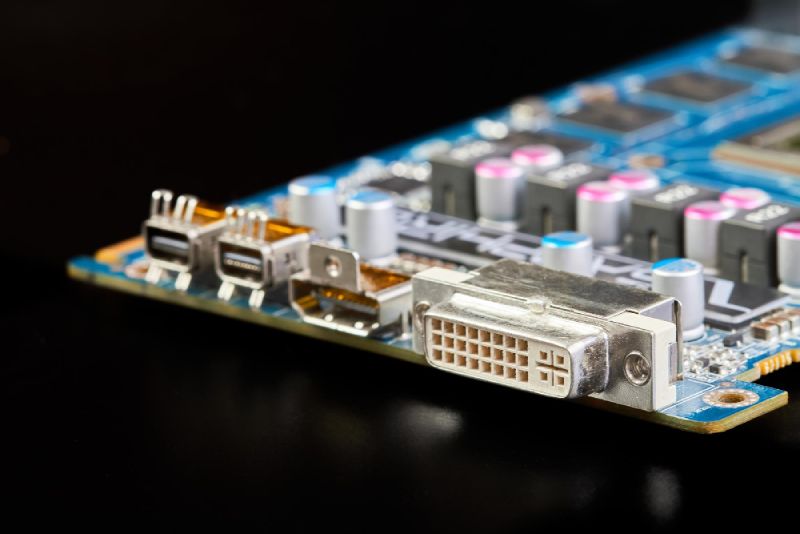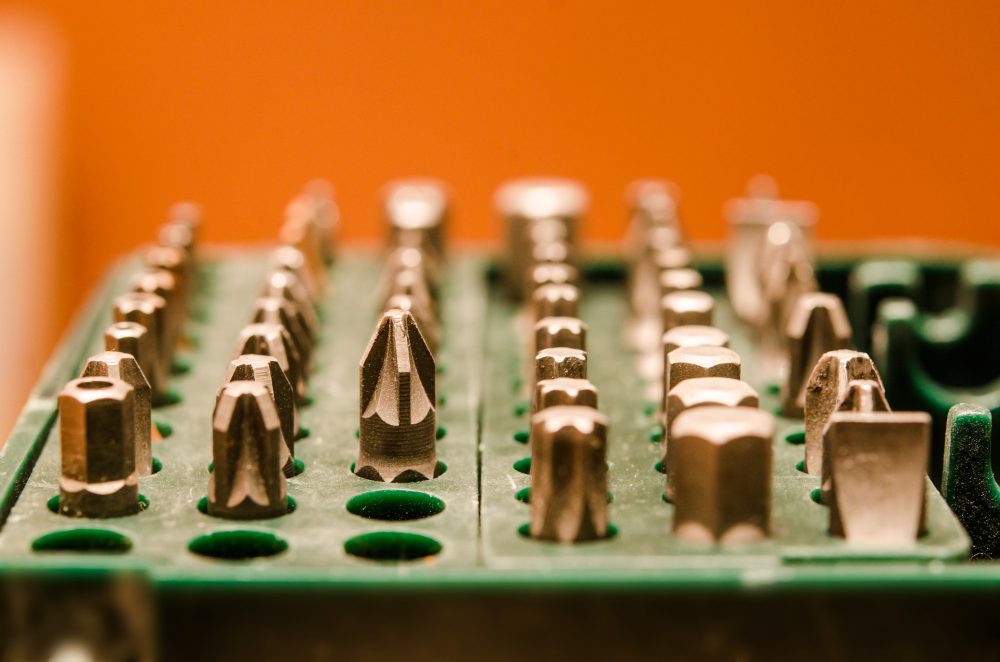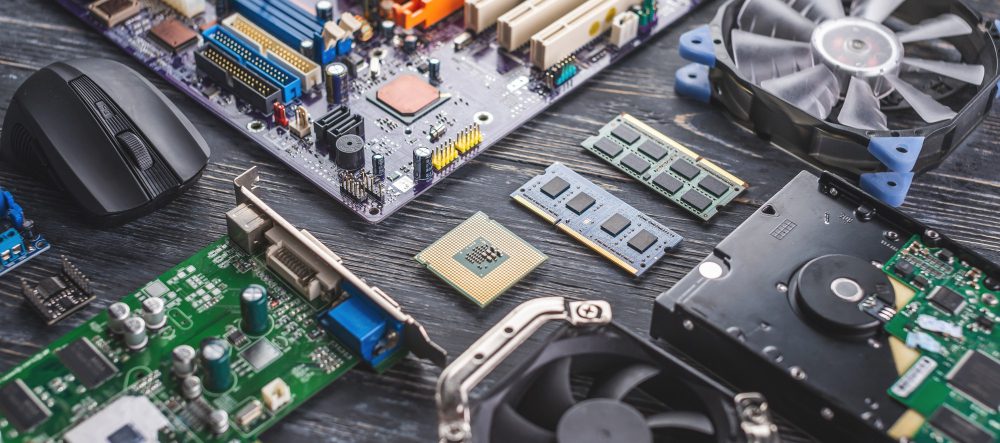Is it the CPU or the motherboard?
If you’re experiencing issues with your computer’s performance, such as slow processing speeds or system crashes, it can be difficult to pinpoint the underlying cause. Two critical components that can often be at the heart of these problems are the CPU (Central Processing Unit) and the motherboard. Understanding the differences between the CPU and the motherboard, and their roles in your computer’s functionality, is essential in troubleshooting and determining the root cause of any issues.
What is a CPU?
The CPU is often referred to as the “brain” of the computer. It is responsible for executing instructions from software programs and performing calculations. The CPU is comprised of various cores and threads that work together to carry out these tasks. The speed and performance of the CPU play a significant role in the overall speed and responsiveness of your computer.
What is a motherboard?
The motherboard, sometimes called the mainboard, is the central circuit board that connects all the components of a computer together. It provides communication pathways for various hardware components, including the CPU, RAM, graphics card, and storage devices. The motherboard also contains slots and connectors for expansion cards, such as sound cards or network cards.
The relationship between the CPU and the motherboard
The CPU and the motherboard have a close relationship, as the CPU is designed to fit into a specific socket on the motherboard. This socket ensures proper electrical connections between the CPU and the rest of the system. The motherboard also provides power and data connections to the CPU, allowing it to communicate with other components effectively.
It is important to note that CPUs and motherboards are not interchangeable. Different CPU architectures require specific motherboard socket types, and vice versa.
Determining the cause of performance issues
When faced with performance issues, it can be challenging to determine whether the problem lies with the CPU or the motherboard. However, there are some steps you can take to narrow down the possible cause.
- Check for overheating: Overheating can cause both CPU and motherboard issues. Ensure that your computer’s cooling system is functioning properly by cleaning out any dust and debris and checking that fans are running smoothly.
- Run diagnostic tests: There are several software programs available that can help diagnose hardware issues. Run a diagnostic test to check for any errors or malfunctions in your CPU or motherboard.
- Test individual components: If possible, try swapping out the CPU or testing it in another compatible motherboard to see if the problem persists. Similarly, testing a different CPU in your motherboard can help determine if the issue lies with the CPU or the motherboard.
“The CPU and motherboard work together in perfect harmony to ensure your computer functions optimally. Understanding their roles and troubleshooting techniques is essential in resolving any performance issues.” – Computer Expert
In conclusion, the CPU and the motherboard are both vital components of a computer, and issues with either one can significantly impact system performance. By understanding the differences between these components and following appropriate troubleshooting steps, you can successfully identify and resolve any problems you may encounter.
Does CPU Make FPS Better?
When it comes to gaming, achieving smooth and high frame rates per second (FPS) is crucial for an immersive experience. While graphics cards are often considered the main contributor to FPS, the role of the central processing unit (CPU) cannot be underestimated.
Understanding the Role of the CPU
The CPU acts as the brain of the computer, executing instructions and managing various tasks. In gaming, the CPU plays a significant role in processing game logic, physics calculations, artificial intelligence, and other non-graphical tasks. While the GPU handles rendering and graphics-related computations, the CPU ensures that the game runs smoothly by managing these background processes.
The Impact of CPU on FPS
Having a powerful CPU can significantly improve FPS, especially when it comes to CPU-intensive games or situations where there are numerous non-player characters (NPCs) or complex physics simulations involved. A faster CPU can handle these tasks more efficiently, resulting in higher frame rates and better overall performance.
“A powerful CPU contributes to smoother gameplay, reduced input lag, and improved responsiveness.”
Factors Affecting CPU Performance for FPS
Several factors influence how much impact the CPU has on FPS:
- CPU Clock Speed: A higher clock speed means the CPU can execute instructions more quickly, improving FPS.
- Number of Cores: Having more cores allows the CPU to handle multiple tasks simultaneously, enhancing performance in multi-threaded games.
- CPU Cache: A larger cache size enables the CPU to store frequently accessed data, reducing bottlenecks and improving FPS.
- Platform and Architecture: Different CPU architectures and platforms can vary in performance, so choosing the right processor for gaming is essential.
Can BIOS Run Without CPU?
The Basic Input/Output System (BIOS) is firmware that initializes and controls hardware components during the boot process of a computer. It is responsible for loading the operating system into memory and performing various system checks. One might wonder if the BIOS can run without the central processing unit (CPU), which is the main component responsible for executing instructions and performing calculations in a computer system.
Understanding the Role of the CPU in the Boot Process
The CPU plays a crucial role in the boot process by executing the initial startup instructions stored in the BIOS. These instructions are responsible for initializing essential hardware components, such as the memory, chipset, and peripherals. Without the CPU, the BIOS would not have the necessary processing power to perform these tasks.
The Sequential Nature of the Boot Process
The boot process follows a sequential flow where each step relies on the successful completion of the previous one. The CPU acts as the driving force behind this sequential progression, executing the necessary instructions to load the operating system and establish a functional computing environment. Without a CPU, this sequential flow would break, preventing the proper functioning of the BIOS and hindering the boot process.
Can BIOS Partially Function Without a CPU?
While the BIOS heavily relies on the CPU during the boot process, certain activities within the BIOS can occur without the CPU. For example, some modern motherboards feature a backup BIOS, also known as a secondary BIOS or BIOS recovery mechanism. This secondary BIOS can execute basic tasks like system diagnostics and firmware updates even if the main CPU is not present or fails.
However, it’s important to note that the primary function of the BIOS, which is to initialize the hardware and load the operating system, cannot be performed without a CPU. The CPU is the core component that executes the necessary instructions stored in the BIOS ROM.
Quote: “The absence of a CPU severely hampers the functionality of the BIOS, preventing it from fulfilling its primary role in the boot process.”
In conclusion, while certain limited functions within the BIOS can operate without a CPU, the overall functionality of the BIOS and the boot process heavily relies on the presence and proper functioning of a CPU. The CPU acts as the essential component that executes the instructions stored in the BIOS and facilitates the smooth progression of the boot process.
Does CPU matter for gaming?
When it comes to gaming, the CPU (Central Processing Unit) is a crucial component of your gaming setup. While the GPU (Graphics Processing Unit) is often considered the most important aspect of gaming performance, the CPU plays a significant role as well.
The CPU’s Impact on Gaming Performance
Your CPU is responsible for handling various tasks in a game, such as physics simulations, artificial intelligence, and game logic. A powerful CPU ensures smoother gameplay, faster loading times, and efficient multitasking capabilities. However, it’s important to note that the impact of the CPU on gaming performance may vary depending on the type of game you play.
In CPU-intensive games, such as strategy or simulation games, a stronger processor can significantly improve performance. These games rely heavily on CPU calculations to process complex algorithms and calculations. On the other hand, in GPU-intensive games like first-person shooters, the graphics card takes center stage, and the CPU’s impact may be less pronounced.
Choosing the Right CPU for Gaming
When selecting a CPU for gaming, several factors should be considered. The number of cores and threads, clock speed, and cache size all play crucial roles in determining a CPU’s performance. It’s essential to strike a balance between your CPU and GPU to avoid bottlenecks and ensure optimal gaming performance.
“A powerful CPU ensures smoother gameplay, faster loading times, and efficient multitasking capabilities.”
If you are building a gaming PC, research the recommended system requirements for the games you plan to play. This will give you an idea of the CPU power needed to run those games smoothly. Additionally, consider future-proofing your system by opting for a CPU with higher performance capabilities than your current needs. This will help ensure your system can handle upcoming game releases.
Overclocking and CPU Cooling
Overclocking, the process of increasing a CPU’s clock speed beyond its factory settings, can provide a significant performance boost in gaming. However, it may also generate more heat, requiring adequate CPU cooling solutions. Overheating can lead to thermal throttling, negatively impacting gaming performance. It’s crucial to invest in a reliable CPU cooler to maintain optimal temperatures while pushing your CPU to its limits.
Should I spend more on CPU or GPU?
When building a computer or upgrading your current setup, one of the biggest questions you may have is whether you should spend more on the CPU (Central Processing Unit) or the GPU (Graphics Processing Unit). Both components play crucial roles in determining the overall performance of your system, but it’s important to understand their differences and prioritize based on your specific needs.
The Importance of a Powerful CPU
The CPU is often referred to as the “brain” of the computer. It handles all the necessary calculations and instructions needed to run applications and perform tasks. A powerful CPU is essential for tasks that rely heavily on processing power, such as video editing, 3D rendering, and multitasking. If you use resource-intensive software or require fast data processing, investing in a high-end CPU can significantly improve performance.
The Role of a Strong GPU
While the CPU handles general computing tasks, the GPU is responsible for graphics-related processes. It excels at rendering images, videos, and animations, making it essential for gaming, graphic design, and video editing. If your primary focus is gaming or graphic-intensive tasks, allocating more of your budget towards a high-performance GPU can result in smoother gameplay, faster rendering times, and better visual quality.
Consider Your Use Case
Ultimately, the decision to spend more on a CPU or GPU depends on your individual use case. If your activities primarily involve heavy multitasking, data analysis, or content creation, a powerful CPU may be a better investment. On the other hand, if you’re a gamer or work extensively with graphics, a higher-end GPU should be a priority. Striking a balance between the two is important, as both components work together to deliver optimal performance.
Investment Flexibility
It’s worth noting that upgrading a CPU in the future can often be a more complex and costly process compared to upgrading a GPU. CPUs are typically tied to specific motherboard socket types, which may limit your upgrade options. GPUs, on the other hand, have a wider range of compatibility and can be easily swapped out for newer models. Consider this when making your initial purchase, as investing more in a future-proof CPU may provide better long-term value.
“The key is to assess your own needs and prioritize accordingly. Determine the primary purpose of your system and allocate your budget accordingly.”
In conclusion, the decision to spend more on a CPU or GPU depends on your specific requirements and use cases. Understanding the differences and considering your computing needs will help you make an informed decision. Whether you choose to prioritize a powerful CPU or a strong GPU, remember that a well-balanced system is the key to achieving optimal performance.
Is i7 better than i5?
One of the most common debates among tech enthusiasts and computer users is whether the Intel Core i7 processor is better than the Intel Core i5 processor. Both processors are part of Intel’s widely popular lineup, and while they share similar features, there are several key differences that set them apart.
Performance
When it comes to performance, the Intel Core i7 generally outperforms the i5. The i7 processors typically have more cores and higher clock speeds, resulting in better multitasking capabilities and faster overall performance. This makes the i7 ideal for tasks like video editing, gaming, and running complex software.
Quote: “The i7 processors are designed for power users who require maximum performance and are willing to pay a premium for it.”
Budget Considerations
While the i7 offers superior performance, it also comes with a higher price tag. If you are on a tight budget or primarily use your computer for everyday tasks such as web browsing, email, and word processing, the i5 processor may be a more cost-effective choice. It still provides ample power for these tasks and offers good performance for casual gaming.
Power Efficiency
Power efficiency is another aspect to consider when choosing between an i7 and an i5. Generally, the i5 processors consume less power compared to the i7, making them more energy-efficient. This can lead to longer battery life in laptops or lower electricity consumption in desktops.
Conclusion
While the GPU is critical for delivering stunning visuals in games, the CPU plays a crucial role in maintaining smooth and high FPS. A powerful CPU contributes to smoother gameplay, reduced input lag, and improved responsiveness. When looking to optimize gaming performance, investing in a capable CPU that meets the demands of modern games can make a noticeable difference.
While the GPU is typically the star of the show in gaming, the CPU still plays an important role in overall gaming performance. A powerful CPU can enhance gameplay, reduce loading times, and improve multitasking capabilities. When choosing a CPU for gaming, consider the recommended system requirements for your favorite games and aim for a balanced setup. Don’t forget to invest in proper CPU cooling if you plan to overclock your processor for even better gaming performance.
In conclusion, whether the Intel Core i7 or i5 is better depends on individual needs and preferences. If you require high-end performance for demanding tasks and are willing to invest in a more expensive processor, the i7 is the way to go. However, if you are on a budget or have more modest computing needs, the i5 still offers excellent performance at a more affordable price.



